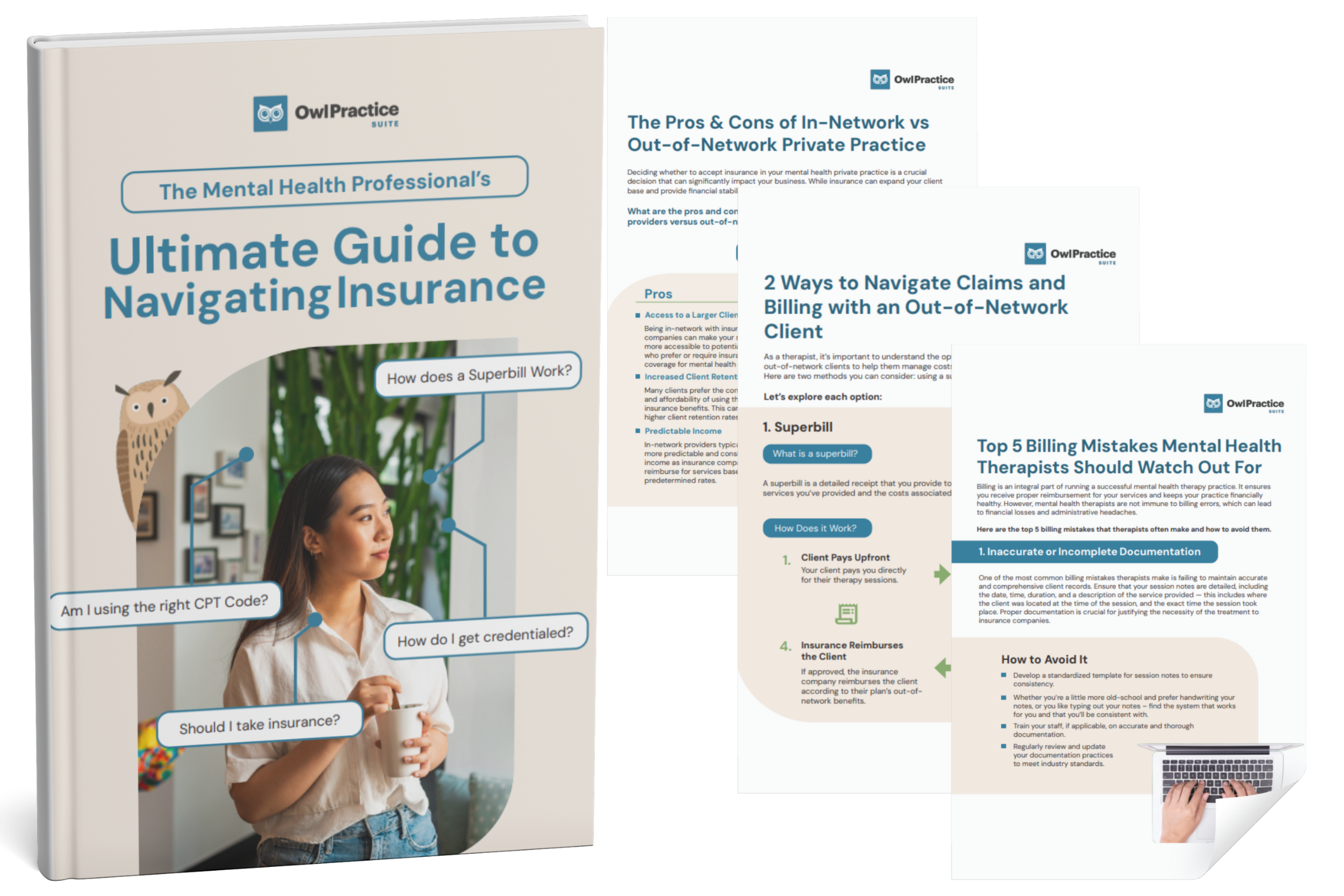Navigating the world of insurance can be complex, but it’s an integral part of your practice. Understanding your contract with insurance providers is an important step in ensuring you can serve your clients effectively while maintaining a financially stable practice. We’ll provide a comprehensive guide to help you understand the ins and outs of your contract with insurance providers.

Why Understanding Your Contract Matters
Your contract with insurance providers is more than just a legal agreement; it’s the foundation of your relationship with them.
Understanding your contract is important for several reasons:
Treatment Guidelines: Contracts often include guidelines on treatment methods, the duration of therapy, and other factors that can influence how you provide care to your clients.
Termination Clauses: Understanding the conditions under which the contract can be terminated is vital to avoid potential disruptions in client care.
Key Components of Your Contract
Reimbursement Rates: Contracts specify the rates at which you’ll be reimbursed for your services. It’s crucial to know these rates to set your fees accordingly and ensure your services are financially sustainable.
Helpful Tip: You can see your rate before you sign the contract, and sometimes you can negotiate the rate before signing. Once you sign, you can’t renegotiate or ask for an increase until after some time
Authorization and Referral Requirements: Your contract may outline when prior authorization or referrals are needed for certain services. Failure to follow these requirements can lead to claim denials.
Timely Filing Deadlines: Contracts typically include deadlines for submitting claims. Missing these deadlines may result in claim denials or delayed payments.
Provider Network Participation: Your contract defines the scope of your participation in the provider network, including the geographic areas where you can provide services.
Risks and Challenges
Understanding your contract also means recognizing potential risks and challenges:
- Limited Autonomy: In-network therapists often have to follow specific treatment guidelines set by the insurance company, which can limit your professional autonomy.
- Contract Changes: Insurance companies can change contract terms, including reimbursement rates, at any time. Staying updated is crucial to manage your practice effectively.
Strategies for Navigating Your Contract
Understanding your contract also means recognizing potential risks and challenges:
Regular Review: Routinely review your contract to ensure you are aware of any changes and to stay informed about your rights and obligations.
Effective Communication: Maintain open communication with your insurance providers to address any questions or concerns regarding your contract.
Seek Legal Advice: If you have concerns about specific contract clauses or changes, consider consulting with a legal professional who specializes in healthcare contracts.
Renegotiation: You can ask for rate increases at regular intervals — this is typically annually.
Summary
Understanding your contract with insurance providers not only ensures fair reimbursement but also helps you provide quality care to your clients without unexpected disruptions. Regularly reviewing and staying informed about your contract can help you manage your practice effectively.
By mastering this aspect of your business, you can continue to make a positive impact on the mental
well-being of your clients while maintaining a sustain- able and thriving practice.

Get the “Ultimate Guide to Navigating Insurance” eBook Below!
Reduce clinical administrative tasks and transform more lives with Owl Practice. Owl Practice provides all the tools you need to make your practice successful. Join the thousands of care professionals using Owl to run their practice every day.



